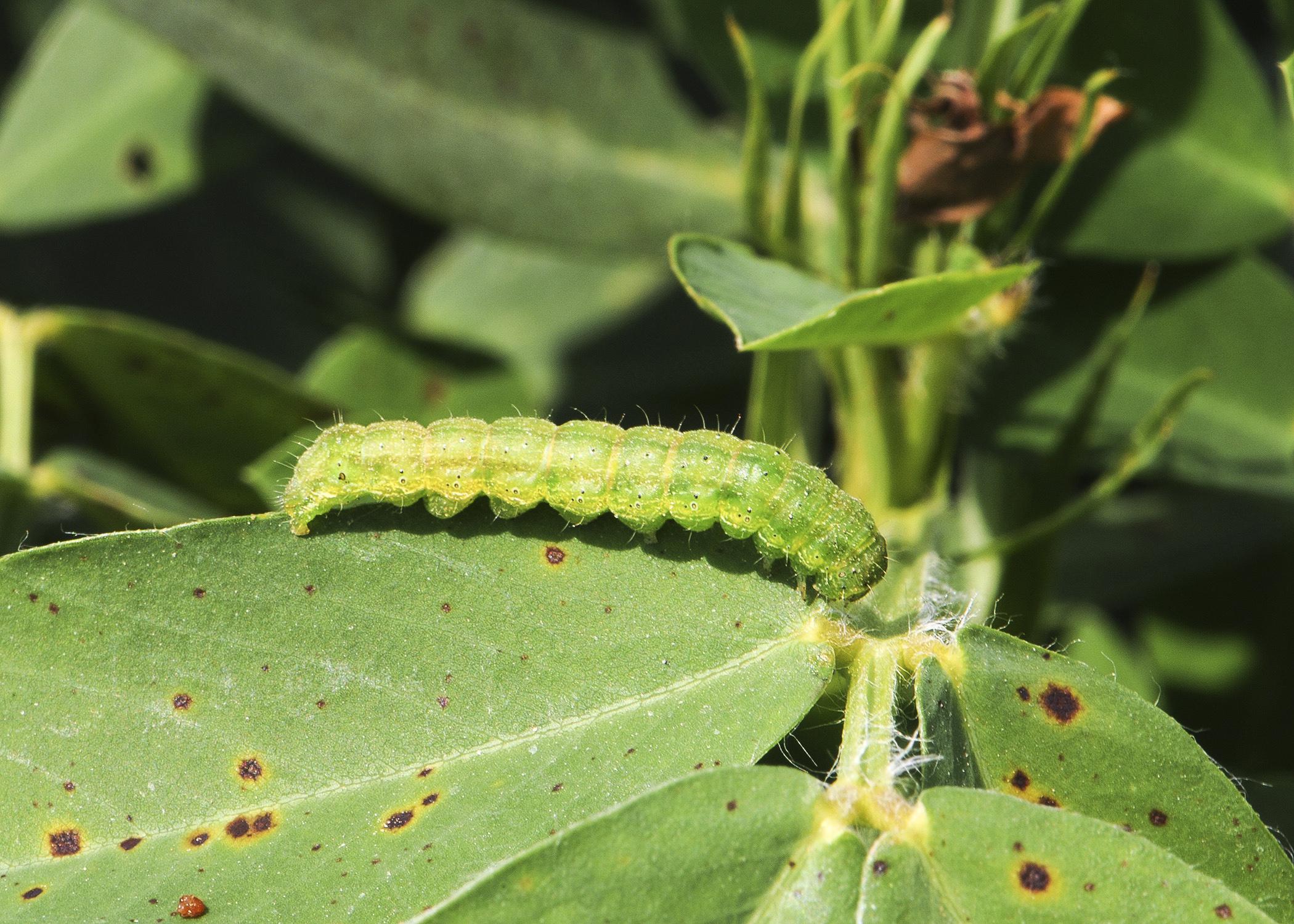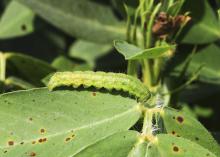Information Possibly Outdated
The information presented on this page was originally released on June 9, 2014. It may not be outdated, but please search our site for more current information. If you plan to quote or reference this information in a publication, please check with the Extension specialist or author before proceeding.
MSU researchers to test pest control methods
STONEVILLE -- Researchers at the Mississippi State University Delta Research and Extension Center believe a new research project can help farmers reduce their number of pesticide applications without reducing peanut yield.
Jeff Gore, an Extension entomologist and assistant research professor with the Mississippi Agricultural and Forestry Experiment Station at the MSU Delta Research and Extension Center in Stoneville, said Mississippi peanut producers soon will have pesticide recommendations tailored specifically to the local climate.
“We’ve always relied on recommendations from other peanut-producing states, and that has worked pretty well for us,” Gore said. “But we are always looking for ways to improve production while maintaining sustainable practices and controlling costs.”
The two-year study will help researchers understand which insects cause the most yield loss and determine the best pesticide spraying schedule to control them in Mississippi. Scientists, consultants and producers now rely on data from other peanut-producing states, including Georgia, Texas and South Carolina.
“We spray for several different pests in peanut fields, based mostly on recommendations from Georgia,” Gore said. “If we managed three-cornered alfalfa hoppers based on the thresholds from other states, we should be spraying four to five times during the growing season. But based on some preliminary research, we don’t think our farmers are experiencing significant yield loss that would merit that many sprays.”
Currently, researchers recommend Mississippi farmers spray for the three-cornered alfalfa hopper when they find two insects per six feet of row, Gore said. The research may indicate producers should wait until insect numbers are higher before applying insecticides.
Insects in Mississippi fields are the same as insects in other states, but conditions in Mississippi cause the mixture of insects and time of outbreak to vary, Gore said.
“The way peanut plants grow in Mississippi is different than in other states,” Gore said. “Plants here are more vegetative and produce more vines, so there is much more foliage for insects to feed on. Because of that, we think peanuts on our soils can stand a little more defoliation, which may help reduce insecticide costs.”
Three groups of insects feed on peanut plants. Soil-inhabiting insects feed on the developing roots and nuts, and both caterpillar pests and bug-like pests feed aboveground on stems and foliage.
Even within Mississippi, the combination of insects in a field differs from region to region, Gore said.
“The complex of insects in the Delta is different from that in Northeast Mississippi, and the Hattiesburg area has a different blend than either of these,” Gore said.
Researchers intend to examine the overall population of peanut insects, instead of individual insects. They will use four sections of a peanut field at the DREC station to conduct spray trials. One trial will control bug-like pests. A second trial will control caterpillar pests, and a third will control all three groups of pests. Another section will not be sprayed.
“This study will give researchers and growers more confidence in the recommendations we give,” Gore said. “Ultimately, we hope the results of the study help protect yields and save some time and money for farmers.”
Trey Bullock, a consultant with 20 years of experience in south Mississippi peanut fields, is excited about the research.
“I’m glad they are increasing the research on peanuts in Mississippi,” Bullock said. “Growers in this part of the state have been growing peanuts for a long time, and it’s a bread-and-butter crop for them because of the dry land. This kind of information will definitely help us.





